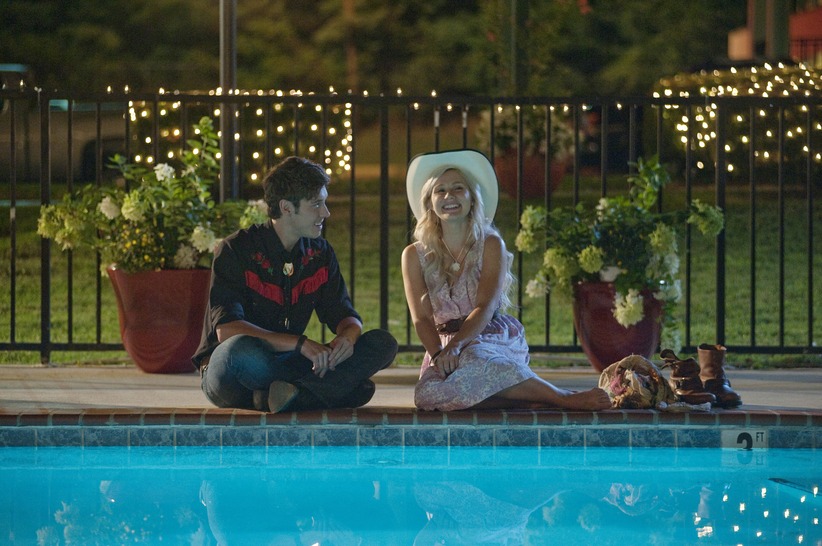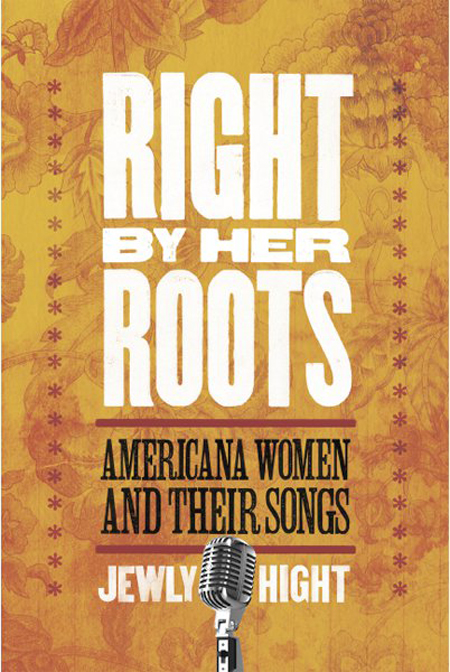There in a Nashville coffee shop, Buddy Miller winced. He does that sometimes, usually just after receiving a compliment. Miller takes a compliment like a wheezy barroom drunkard takes a punch to the sternum. He’s hard on himself, though he treats the rest of us with ease and gentility. He’s a nice man. And he has become one of the more celebrated roots music figures of our times.
Videos by American Songwriter
There in a Nashville coffee shop, Buddy Miller winced. He does that sometimes, usually just after receiving a compliment. Miller takes a compliment like a wheezy barroom drunkard takes a punch to the sternum. He’s hard on himself, though he treats the rest of us with ease and gentility. He’s a nice man. And he has become one of the more celebrated roots music figures of our times.
He plays guitar and sings with Emmylou Harris, Robert Plant, Alison Krauss and other folks of legendary renown. He wins awards at the annual Americana Music Festival, and No Depression magazine named him artist of the decade.
At the core of his appeal are songs, some of which he writes with wife Julie Miller, and some of which she writes and he sings himself. Some of them, they sing together, and some of those are on the new Buddy & Julie Miller album, Written in Chalk. It’s an unusual duo album, in that they aren’t always singing together on it–sometimes it’s Harris or Plant singing with Buddy, and sometimes it’s Patty Griffin singing with Julie–but there is an air of melancholy wisdom and a depth of feeling to the thing that is decidedly shared.
These are difficult times for the Millers. In the past few years, while people cheered their songs, and while Harris, Brooks & Dunn, The Dixie Chicks, Lee Ann Womack and others sang their songs, they have weathered illness and tragedy. Julie’s beloved brother was killed by lightning, and she has dealt with her grief while also suffering from issues related to fibromyalgia. Amidst all this, the songs have been something of a balm, and a way to find beauty in pain and certainty in the questioning. Done with the wincing, Buddy Miller took time to talk about the music.
Was this record long in the construction?
It was way too long in the construction. It started out to be a Julie record. We got most of the way done, and then she lost her brother. And that put a stop to things. And then I did my record, Universal United House of Prayer. She had most of a record recorded at that point. We tried to get back to her record and found it difficult. After a year of trying, and of her writing probably 20-30 great songs, we scrapped that and started a Christmas record that we got two-thirds of the way done with. That’ll come out sometime, I hope. And then I did Allison Moorer’s record in there. And I had to get some kind of record done for New West, whatever it was. I figured, “I’ll do her songs,” cause I was so busy and it had been difficult for me to come up with anything, and she’s so good. But I was trying to do it and it wasn’t feeling like it had a direction. It just didn’t feel right. I started listening to some of her older tracks we’d cut, and thought about our whole situation, and this record kind of began. Then she got involved, too. It’s a strange record. I don’t know whether it should be a Buddy and Julie record or a Buddy/Julie record, because there’s a lot that we do apart from each other on here. But I think that’s OK. I think it tells some kind of a story in the end.
Did you grow up listening to country music?
I grew up in New Jersey, Ohio, Maryland and Pennsylvania, but I loved country [music]. I was big into all kinds of music, and especially into the Grateful Dead. But my interests drifted more towards duets and country music. When I started moving around, I always moved places where I didn’t know anybody. I wound up in Austin, and got a gig in Ray Campi’s band, playing rockabilly. It was a great time in Austin, and I auditioned for a band that did a lot of cover songs: a lot of John Prine, and Gram [Parsons] and Emmylou love songs. Julie was the girl singer in that band, and that’s how we got together.
Was she already a writer at that point?
No. She didn’t start writing until around ‘81 or ‘82. When she came to the Lord, or whatever you’d call it, suddenly something was turned on. Something switched on in her, and this stuff started coming out of her like a flood. Incredible songs. It was amazing to me. We were living in New York by then.
New York?
Right. Austin was a great scene, and a lot of fun. But they weren’t making records much in Austin. Where did they make records? New York, L.A. and Nashville. We played the Lone Star Café in New York, and I thought, “Well, we could move here and make records, probably.” On New Years Day of 1980, I packed the van and drove, and when I got tired, Julie drove. She ran out of gas on the wrong road in the middle of a blizzard. But when we finally got there, New York was great. I got to play with Jim Lauderdale, and Shawn Colvin, and Larry Campbell.
That’s a bunch of heavy songwriters.
Well, most of us weren’t writing yet. Jim was singing. Shawn had one song, I think. We were all just hanging out in the scene. We’ve all stayed friends, too.
You re-connected with Jim Lauderdale in Los Angeles.
Yes, I called him and asked what it was like in L.A., and asked, “Should I move?” He said, “Yeah.” And he said, “If you want to come down and try playing with me, that’s great.” And I did. And then Hightone Records wanted him to do a song for a compilation record they were doing and he couldn’t do it, but he said, “What about Buddy?” And that’s how I got involved with the record business. Jim’s responsible.
I remember that one of the songs you wrote for that compilation was about a minute-and-a-half long.
I did two songs, and maybe both of them together were about a minute-and-a-half. I didn’t know what I was doing, but it was fun to get back into it. Jim was and still is so creative and inspiring to be around. That’s how I learned to make records, was watching how he worked. I shouldn’t have, because he goes in without the songs finished. I thought, “That makes sense: get it to sound like a song, then fill in some blanks there.” I got myself into some trouble with that.
How did you wind up in Nashville?
Julie and I went bankrupt in L.A. I would sell a guitar at the end of each month to pay the rent. But I played some showcases in Nashville with Jim, and I looked at the house prices and thought, “Maybe musicians are thought of as people in this town.” We got a house. That was 1992 or ‘93.
Do you tend to write a whole song at one sitting?
Until recently, I’d always just have pieces. I’d start something and then not finish it. I’d pick up a guitar and if stuff came out that didn’t make me cringe three weeks later-that’s my goal, to do something that doesn’t make me cringe-then I’d take the pieces to Julie. But these days, she just does all of her writing. Once in a while, I’ll work on something with her, but it’s not like she needs me to. She’s great. Right down to the licks on the songs that she wants.
Does she keep a lot of guitars around to write?
No. I got her a mandolin with six strings, and she writes on that a lot. And she writes on some cheap guitars she has around, but mostly she writes without any instrument. She’ll write when she’s not supposed to. When we were working on the Christmas record recently, that’s when she got so creative with her songs. If we’re working on a rock song, she’ll write some great country song. If I’m walking out of the room and she wants me to stay, she’ll start singing something that’s great.
How about you? Do you write on a particular guitar?
I keep all kinds of instruments around, and everything is out, so I can see it. I can glance around and see the instruments, and see if they look like they’d work on a song I’m thinking of.
“Wide River,” which Levon Helm recorded, was a real collaboration between you and Julie, right?
I think I started that. I came up with all the music on it, and had a few ideas for what I wanted it to say. I knew it wasn’t a gospel record, but I knew it was spiritual. I knew I wanted Emmylou Harris to sing it with me. Sometimes, I sit down with a guitar and go, “What would Emmylou’s voice sound like on this?” I started singing it with some words I had, but then when I took it to Julie it went to another place. Her brother had passed away not long before this, and she had a lot of stuff in her. She listened, and she came up with the hook, with “I’ve got a wide, wide river to cross.” If I have an idea around the house, I’m never attached to it. Being around Julie, I always know she’s got something deep in her.
Do you write on a computer, or do you jot things down by hand?
I use a computer. Julie, on the other hand, doesn’t even use a pen. She uses a pencil and a pizza box. We don’t have trash. We have stacks of pizza boxes with lyrics written on both sides of the cardboard. She says they make good tables and good pads at the same time.














Leave a Reply
Only members can comment. Become a member. Already a member? Log in.